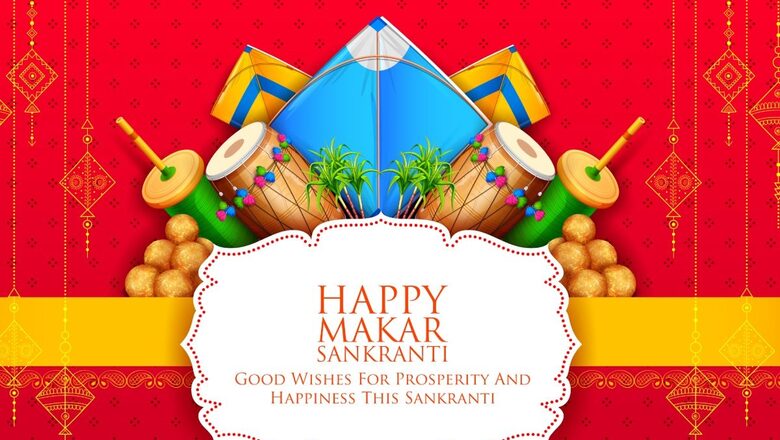
views
Makar Sankranti is an auspicious Hindu festival, celebrated across many parts of India with much pomp and enthusiasm. This harvest festival is observed under many names, rituals, and themes across several states. Due to the sun’s northward motion, Makar Sankranti symbolises the end of the winter season and the beginning of longer daylight hours. This period is popularly known as Uttarayan.
Makar Sankranti, which honours the Sun God Surya, is a seasonal celebration that also bears religious connotations. This year, the festival falls on Monday, January 15. On this occasion, let’s take a look at the 10 different names of Makar Sankranti.
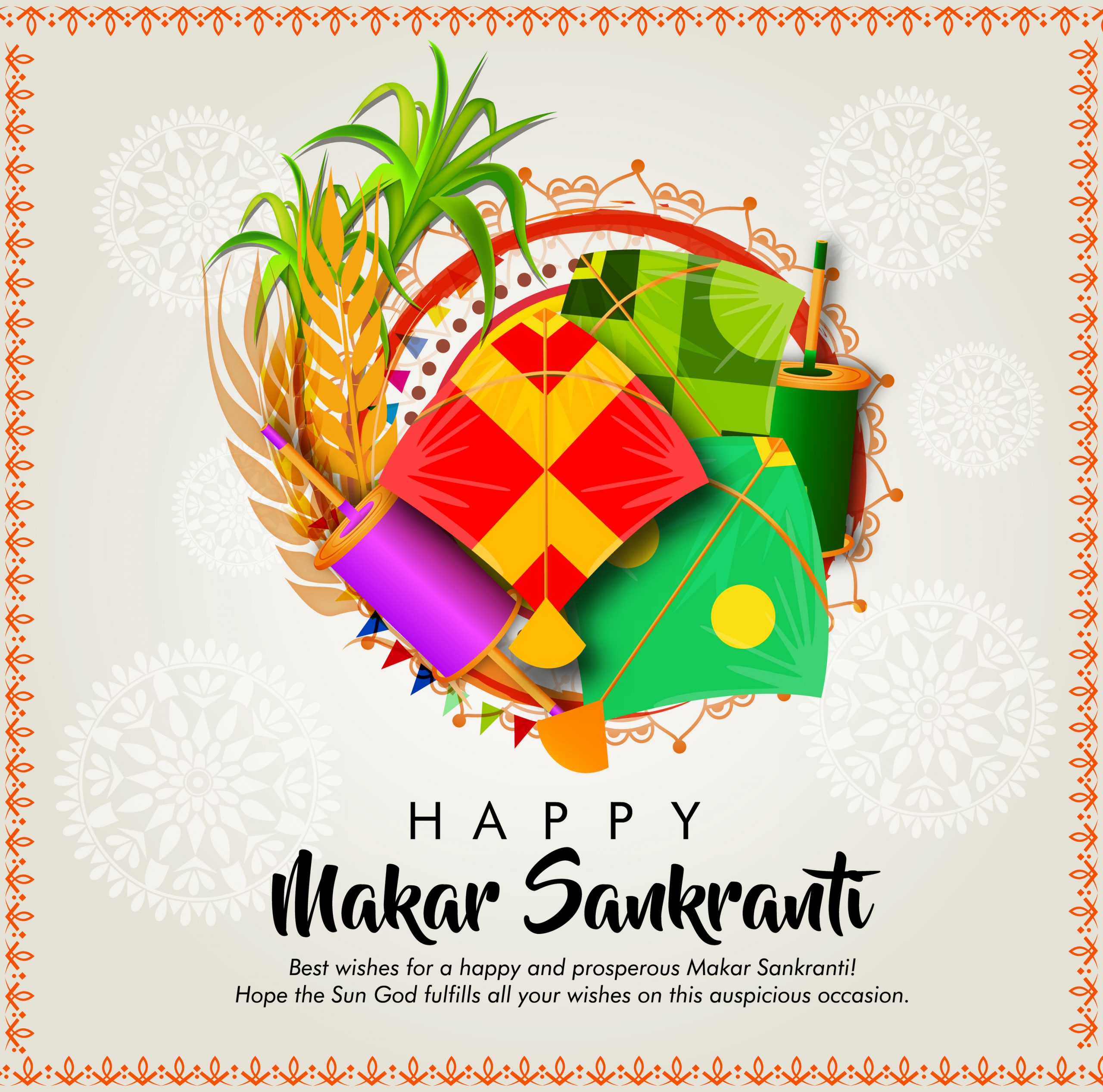
Makara Sankranti – Andhra Pradesh and Telangana
In the states of Andhra Pradesh and Telangana, Makar Sankranti is a 4-day-long festival where friends and families assemble under one roof to celebrate. Sweets are a staple, along with other traditional cuisines.
The first day is called Bhogi, the second day is called Makara Sankranti, the third is Kanuma and the fourth and final day is Mukkanuma.
While a strict vegetarian diet is followed in the first three days, on the last day an animal is sacrificed to God, and its meat is consumed.
Maghe Sankranti – Nepal
People of Nepal celebrate Maghe Sankranti with sesame seeds. According to mythology, a businessman once carried a sack filled with sesame seeds that went on and on without showing any signs of them running out.
Later on, he found out that an idol of Lord Vishnu was kept inside the back due to which he was blessed with never-ending seeds. This has led the devotees to believe that the sesame seeds are auspicious.
Sakraat – Delhi and Haryana
In the states of Delhi and Haryana, the Makar Sankranti celebration is especially significant because it honors the special equation between brothers and their married sisters.
When brothers visit their sisters, they present them with warm winter clothes and a box of sweets. Similarly, the married women offer their in-laws with gifts on the day. Men and women assemble under one roof to celebrate the festival with songs and dance.
Sakraat or Khichdi – Bihar and Jharkhand
In Bihar and Jharkhand, Makar Sankranti is a 2-day long festival where devotees take a holy dip in the waters in the wee hours of the morning. Following that, they light up bonfires and offer sesame seeds to the fire.
Jaggery and sesame seeds are used to prepare sweet dishes. Also, home-cooked meals including rice, lentils, curd, puffed rice, and vegetables are also prepared.
Magha Saaji – Himachal Pradesh
Saaji is a local term that means Sankrant. Magha on the other hand refers to the name of the month and the solar sign (Capricorn) that begins with the arrival of the festival. The day marks the arrival of spring, and many celebrate by having a holy water bath or taking a dip in the rivers.
When devotees visit their neighbours, they exchange sweets like ghee, khichdi, or chikki. Some engage in charity work and visit temples. Folk music and dance make up for the nighttime festivities.
Uttarayan – Gujarat
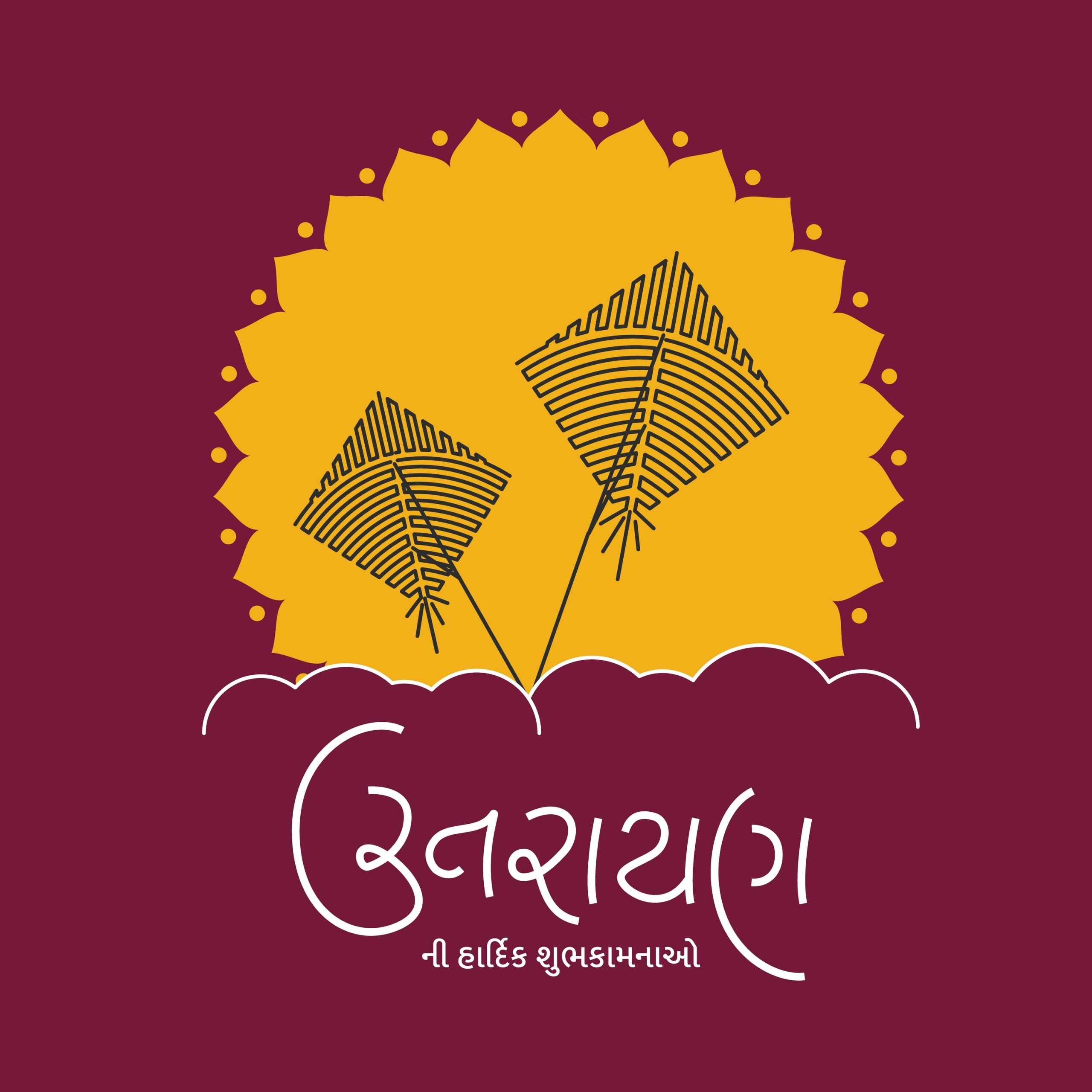
Gujarat celebrates Makar Sankranti with a great deal of excitement. The state is known for its unique and vibrant International Kite Flying Festival. People gather on their rooftops after their morning prayers and fly kites, engaging in fun competitions.
Sweets like chikki and a special Undhiyu dish, which is a mixture of spiced vegetables are enjoyed by many.
Ghughuti or Kale Kauva – Uttarakhand
In Uttarakhand, Makar Sankranti is observed a little differently. Here, the locals offer khichdi and other food items as a part of a charity, some arrange fairs and organise meet-ups with their near and dear ones.
The people here celebrate the departure of migratory birds during this period by preparing sweetmeats, made out of sweetened flour and frying them, and offering them to the birds on their homeward journey.
Suggi – Karnataka
Karnataka’s harvest festival, Suggi, is primarily observed by farmers and the women. In a tradition known as Ellu Birodhu, the women visit one another’s homes and exchange sweets and offerings.
Sesame seeds, jaggery, coconut, fried ground nuts, sugar treats, and sugar cane pieced are served and consumed on the platter. Additionally, women draw beautiful rangolis outside their houses and adorn domestic animals with vibrant decorations.
Pongal – Tamil Nadu
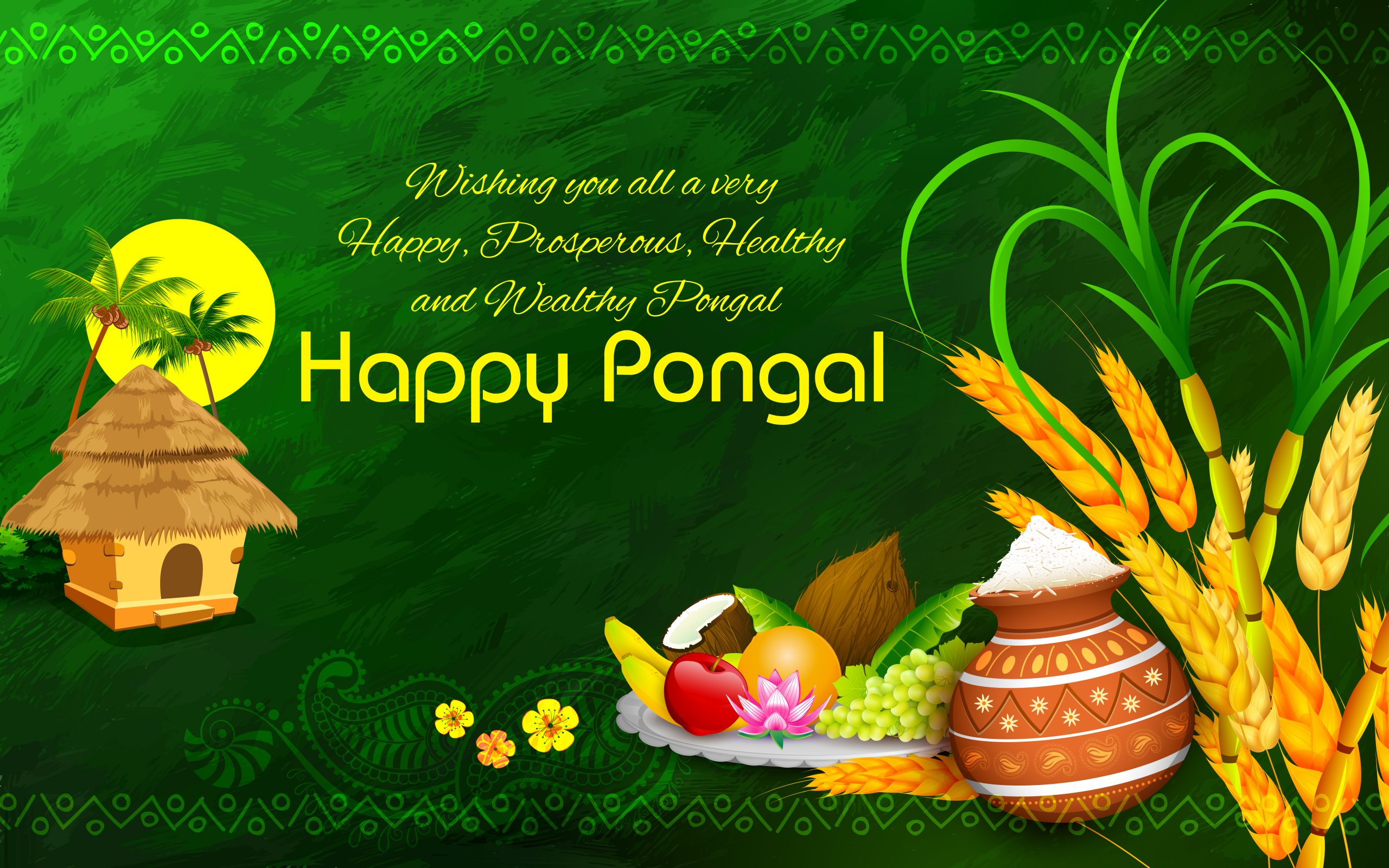
Pongal is celebrated for four days in Tamil Nadu, with each day holding a distinctive significance. On the festival’s first day, devotees wear new clothes, clean and decorate their homes, and discard or donate things or items that are no longer needed. On the following and most important day, they celebrate Pongal by enjoying sweets and sweet rice cuisine.
With the milk and jaggery, the rice is brought to a boil and left to boil over the pot. People give out a cry of joy once the rice starts to boil over, commencing Pongal celebrations. After the rice preparation is offered to God the masses consume the dish as prasad. Visiting one’s family and worshipping the animals occupy the last two days.
Maghi – Punjab
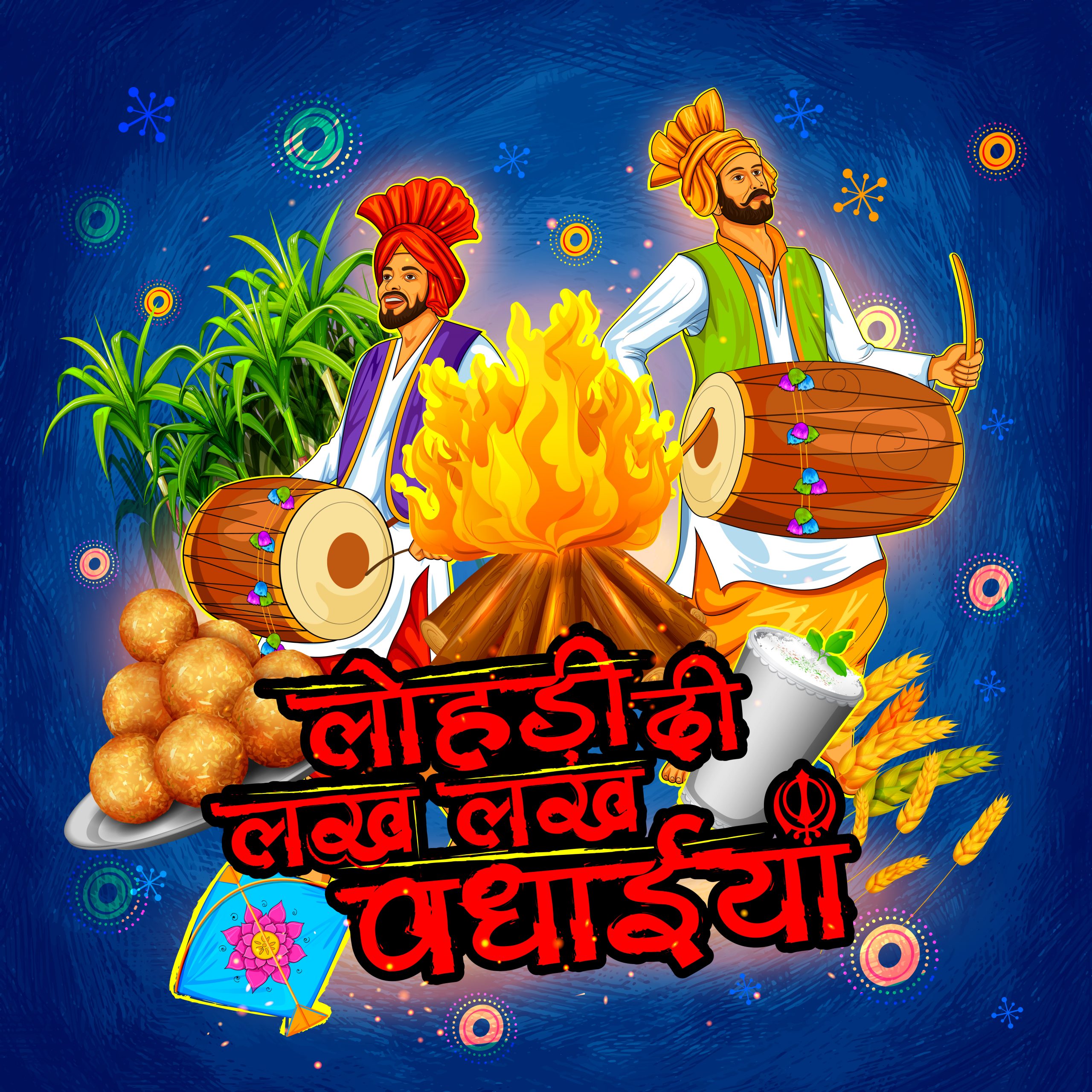
Maghi, which is also known as Lohri, is a memorable day for the people of Punjab since it signals the arrival of warmer summer weather. The devotees believe that to chase the darkness away from their lives and usher in prosperity, an early morning bath should be taken followed by igniting lamps with sesame oil.
Along with enjoying their day by spending time with close ones a scrumptious dinner, and sesame sweets are also thoroughly enjoyed amidst the crackling fire of bonfires in the night.
















Comments
0 comment